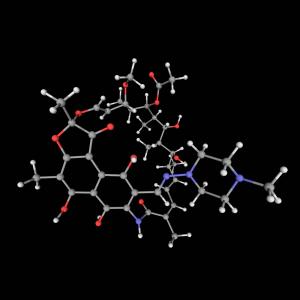
Photo: ARTUR PLAWGO / SCIENCE PHOTO LIBRARY/Getty
Infection with the pandemic virus, SARS-CoV-2, can reduce the number of bacterial species in a patient’s gut, with the lesser diversity creating space for dangerous microbes to thrive, a new study finds.
The study builds on the realization that widespread use of antibiotics to fight infections with disease-causing bacteria in recent decades, by killing off species most vulnerable to available drugs, has left in place more species that are resistant to antibiotics. In addition, disruptions in gut bacterial ratios have previously been linked to more severe COVID-19.
However, researchers say, it has remained unclear until now which came first, the coronavirus infection disrupting the gut microbiome or an already weakened gut making the body more vulnerable to the virus. The new study appears to favor the former explanation. The new investigation also revealed that antibiotic-resistant species can escape into the bloodstream, putting patients at greater risk for life-threatening secondary infections.
Led by researchers at NYU Grossman School of Medicine, the investigation involved 96 men and women hospitalized with COVID-19 in 2020 in New York City and in New Haven, Connecticut. Results showed that the majority of patients had low gut microbiome diversity, with a full quarter dominated by a single type of bacteria. At the same time, populations of several microbes known to include antibiotic-resistant species increased, possibly due to widespread antibiotic use early in the pandemic.
These antibiotic-resistant bacteria found in the gut were also observed to have migrated into the bloodstream in 20 percent of patients. The study authors note that further research is needed to uncover why this group was at higher risk for a secondary infection while others were not.
“Our findings suggest that coronavirus infection directly interferes with the healthy balance of microbes in the gut, further endangering patients in the process,” says study co-senior author and microbiologist Ken H. Cadwell, PhD. “Now that we have uncovered the source of this bacterial imbalance, physicians can better identify those patients with coronavirus who are most at risk of a secondary bloodstream infection,” adds Dr. Cadwell.
The new study is the first to show that the coronavirus infection alone, and not the initial use of antibiotics to treat the disease as others experts had thought, damages the gut microbiome, says Dr. Cadwell, also the Recanati Family Professor of Microbiology in the Department of Microbiology and a professor in the Department of Medicine at NYU Langone Health. He adds the study also provides the first evidence that the very same bacteria in the gut are also entering the bloodstream of patients, causing dangerous infections.
The report published online November 1 in the journal Nature Communications. For the investigation, researchers first infected dozens of mice with the coronavirus and analyzed the makeup of bacterial species in their stool samples. This step allowed them to untangle whether the coronavirus could directly disrupt the microbiome independently of hospitalization and treatment.
Next, they collected stool samples and blood tests from patients with COVID-19 at NYU Langone Health and Yale University hospitals to assess gut microbe composition and the presence of secondary infection. If any bacteria group made up a majority of the bacteria living in the gut, they were considered dominant.
“Our results highlight how the gut microbiome and different parts of the body’s immune system are closely interconnected,” says study senior author Jonas Schluter, PhD, an assistant professor in the Department of Microbiology and a member of NYU Langone’s Institute for Systems Genetics. “An infection in one can lead to major disruptions in the other.” Dr. Schluter cautions that since the patients received different kinds of treatments for their illness, the investigation could not entirely account for all factors that may have contributed to the disruption of their microbiome and worsened the course of their illness.
According to Dr. Schluter, the study team next plans to examine why certain microbial species are more likely to escape the gut during COVID-19. The researchers say they also intend to explore how different microbes interact, which may contribute to this migration into the bloodstream.
Funding for the study was provided by National Institutes of Health grants DP2 AI164318, R01 AI143639, R21 AI139374, R01 DK093668, R01 AI121244, R01 HL123340, R01 AI130945, R01 AI140754, and R01 DK124336. Further funding support was provided by the Yale School of Public Health, the Beatrice Kleinberg Neuwirth Fund, the Howard Hughes Medical Institute, the Crohn’s and Colitis Foundation, the Kenneth Rainin Foundation, the Judith and Stewart Colton Center for Autoimmunity, the Jan Vilcek/David Goldfarb Fellowship Endowment Funds, The G. Harold and Leila Y. Mathers Charitable Foundation, the Yale COVID-19 Research Resource Fund, and the Bristol Meyers Squibb Foundation.
Dr. Cadwell has served as a consultant for Vedanta and for the pharmaceutical companies Abbvie, GentiBio, and Synedgen. Dr. Schluter is cofounder of Postbiotics Plus Research, which develops microbiome therapies. The terms and conditions are being managed in accordance with the policies of NYU Langone.
In addition to Dr. Cadwell and Dr. Schluter, other NYU Langone study investigators were Mericien Venzon, PhD; Lucie Bernard, PhD; Jordan E. Axelrad, MD, MPH; Grant Hussey, BS; Alexis Sullivan, PhD; Chenzhen Lily Zhang, BS; Maria Noval, PhD; Ana Valero-Jimenez, PhD; Juan Gago, MD, MPH; Evan Wilder, MD; Lorna E. Thorpe, MPH, PhD; Dan R. Littman, MD, PhD; Meike Dittmann, PhD; Kenneth A. Stapleford, PhD; Bo Shopsin, MD, PhD; and Victor J. Torres, PhD. Other study investigators included Jon Klein, BS; Arnau Casanovas-Massana, PhD; Albert Ko, MD; and Akiko Iwasaki, PhD; at Yale University in New Haven, Conn.
Media Inquiries
Shira Polan
Phone: 212-404-4279
shira.polan@nyulangone.org

